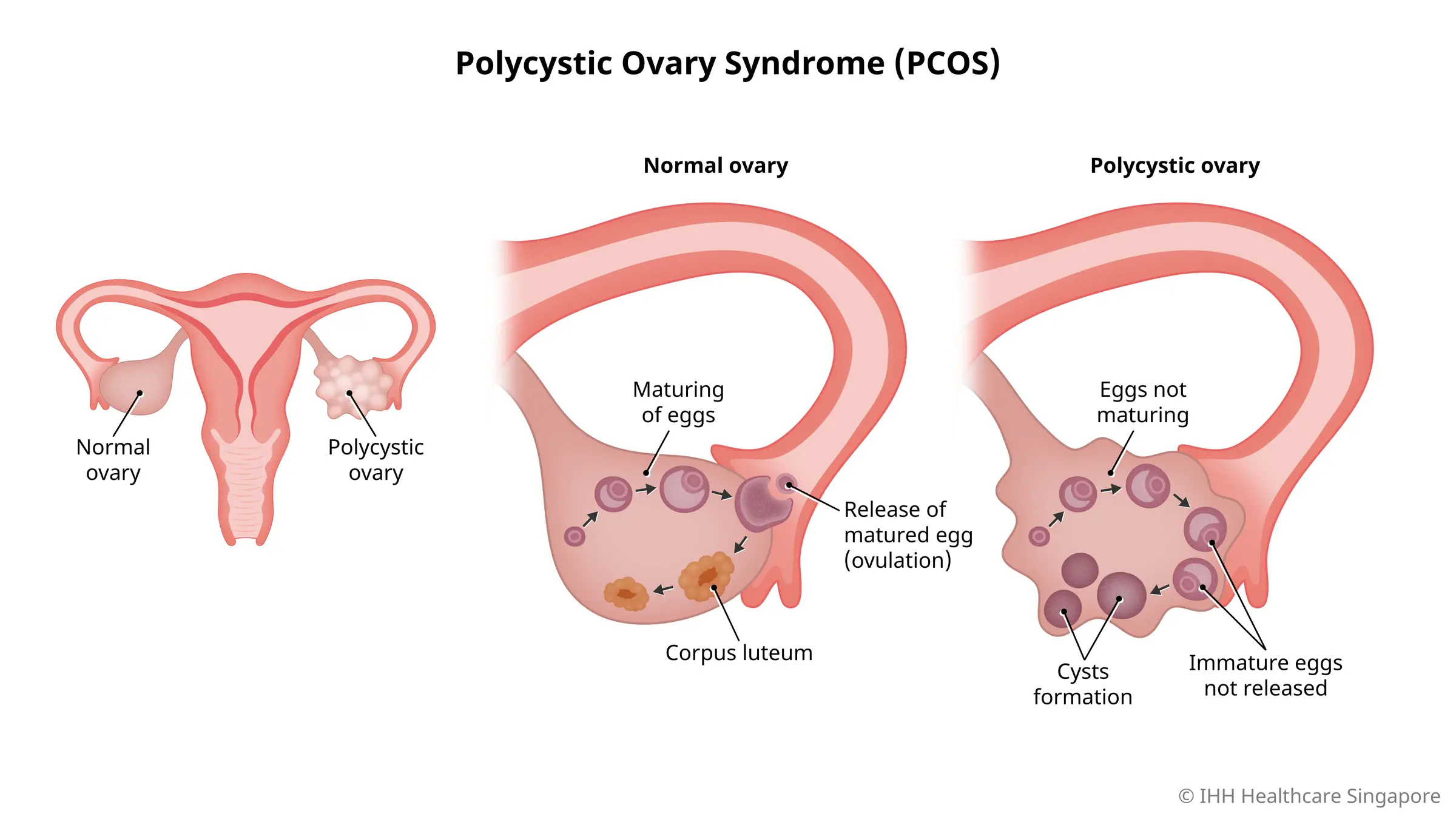PCOD (Polycystic Ovarian Syndrome)-part-2
PCOD (Polycystic Ovarian Syndrome)-This is a hormonal disorder resultind in enlarged ovaries with cysts at the periphery of the ovaries- the cause of this is not well understood but it is a combination of genetic and enviornmental factors.
Before going through this article pl go through our article on PCOD (Polycystic Ovarian Syndrome)-part-1.
For this article pl click on the link given below
Signs, symptoms and effects
Because symptoms can occur for other reasons or go unnoticed, PCOS may go undetected for some time.
Some women begin to notice symptoms around the time of their first period. Sometimes PCOS develops later in response to substantial weight gain. Or they find out when they are having trouble getting pregnant.
The signs and symptoms of PCOS are usually more severe if you are obese.
The signs and symptoms of PCOS vary. To determine if you have PCOS, your doctor will check that you have at least 2 of these 3 symptoms:
Irregular, prolonged or no periods: The lack of ovulation stops the lining of the uterus from shed each month, so you get fewer periods. The lining of the uterus lasts longer and your periods may be heavier than usual. In addition, a thicker uterine lining can increase your risk for endometrial cancer.
Polycystic ovaries: Your ovaries may become enlarged and many small cysts may form around the egg. As a result, the ovaries may fail to function regularly.
Excess androgens: Elevated levels of male hormones (androgens) can result in physical signs of:
Hirsutism: Hair grows on their face and body. Areas affected by excess hair growth may include the face, arms, back, chest, thumbs, toes, and abdomen.
Male-pattern baldness: The hair on the scalp becomes thinner and falls out.
Severe acne: The skin becomes oilier than normal and causes breakouts on areas such as the face, chest and upper back. Skin tags and dark patches of skin may also develop on body folds.

Other common symptoms and effects of PCOS include:
Weight gain: About half of people with PCOS will have weight gain and obesity that is difficult to manage. Both obesity and PCOS increase your risk for high blood sugar, high blood pressure, and altered cholesterol levels.
Fatigue: Many people with PCOS report increased fatigue and low energy. Related issues such as poor sleep can contribute to the feeling of fatigue.
Infertility: PCOS is a major cause of female infertility. However, not every woman with PCOS is the same. While some people may need fertility treatment, others may be able to conceive naturally.
Mood changes: Having PCOS can increase your chances of mood swings, depression, and anxiety, as symptoms such as hormonal changes and unwanted hair growth can negatively affect your emotions.
Pelvic pain: These can occur with periods as well as heavy bleeding. This can happen even when a woman is not bleeding.
sleep problem. People with PCOS often report problems such as insomnia or poor sleep. They may also suffer from a sleep disorder called sleep apnea, where a person will stop breathing for a short time during sleep.
Sometimes the symptoms are obvious, and sometimes they are less obvious. Some women will have only one symptom; Others will have all of that. Many women have PCOS but are not aware of it. In one study, 70 percent of women with PCOS had not been diagnosed.
the treatment
It is important that you see a doctor if you notice any of the signs and symptoms mentioned above in your body.
If you have PCOS, you’ll need regular checkups to check for diabetes, high blood pressure, and other possible complications.
There is high incidence of pre-eclampsia, pregnancy induced hypertension, miscarriage ,premature delivery in pregnant women with pcods.
Risk factors association with pcods –
infertility
high cholesterol levels and
elevated serum lipids
sleep apnea syndrome
liver disease
abnormal uterine bleeding-irregular menses
Hypertension
obesity resulting inlow self-esteem and depression
metabolic syndrome
nonalcoholic fatty liver (steatohepatitis)
depression and anxiety
Endometrial cancer
Heart attacks
Treatment for PCOS
We always recommend treatment from qualified doctors and experienced MD Gynecologist
who will first take detailed history, thorough pelvic examination,PV examination,
Investigations like bl -hormonal levels, oestrogen, progesterone, androgen levels
lipid profile ,
blood sugar
Ultrasound of uterus,ovaries,entire pelvis , abdomen ns such as weight loss, diet, and exercise.
Treatment for pcods-
There is no definite treatment for Pcods.
Treatment is aimed at reduction in the symptoms, enabling to have normal pregnancy,enabling to have a child,
to reduce the risk of developing secondary medical problems as discussed previously.
They can help regulate your menstrual cycle and improve cholesterol levels, lower insulin, and reduce your risk of heart disease and diabetes.
Medications are an option if lifestyle if changes don’t work. Birth control pills and the diabetes drug metformin can both restore a more normal menstrual cycle and relieve symptoms of PCOS, such as hair growth and acne. Clomiphene and surgery improve fertility in women with PCOS.
road ahead-
If you make the right lifestyle changes and continue with your medications, your symptoms may improve significantly. You can get pregnant and have a normal pregnancy with the right surgery or medical treatment. The types of treatment for PCOS may depend on whether the woman is planning to become pregnant.
You can also talk to your health care provider about the best ways to treat symptoms that bother you.
Pl visit healthuseful.com every 10-15 days as new health related articles are posted in it by MD General Medicine and ENT specialist doctors in this period.
https://healthuseful.com/ is the link for this website.




